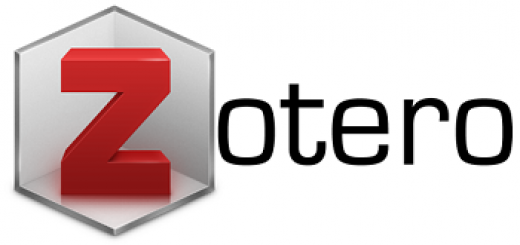Decision Support System to Determine Higher Education Resource Needs Using Accreditation Assessment Standards
Abstract
Accreditation is an activity to evaluate the eligibility of programs and academic units based on predetermined criteria. In an educational institution, accreditation is an important thing to do to improve quality in the field of education because the aim is to improve quality which includes all aspects of education in the form of science, administration, as well as teaching, and educational staff. College managers really need a decision support system that can produce several alternative strategic decisions quickly and accurately. The existence of decision support system tools used to make strategic decisions makes the manager's work lighter and the results are more accurate. In this study, a decision support system approach was applied to determine the resource requirements of tertiary institutions using accreditation assessment standards consisting of a management subsystem model, data management subsystem, and user interface management subsystem. The result of the research is a design of a decision support system that can be used in an educational institution for determining the need of higher education resources.
References
S. S. H. Ho and M. Y. P. Peng, “Managing resources and relations in higher education institutions: A framework for understanding performance improvement,” Kuram ve Uygulamada Egit. Bilim., vol. 16, no. 1, pp. 279–300, 2016, doi: 10.12738/estp.2016.1.0185.
W. Monk, Ellen; Bret, Concepts in enterprise resorce planning, vol. 40, no. 6. 2001.
J. P. Ekonomi, K. I. I. I. Jakarta, P. Ariwibowo, and T. Djuhartono, “Performance Analysis of Human Resources Higher Education in,” vol. 6, no. 2, pp. 146–160, 2018.
S. Ma’arif, “The role of higher education in developing human resource of Pesantren (case study at Universitas Pesantren Tinggi Darul Ulum Jombang),” Al-Albab, vol. 7, no. 1, pp. 119–130, 2018, [Online]. Available: http://digilib.uinsby.ac.id/id/eprint/30808.
Á. H. Galvis, “Supporting decision-making processes on blended learning in higher education: literature and good practices review,” Int. J. Educ. Technol. High. Educ., vol. 15, no. 1, pp. 1–38, 2018, doi: 10.1186/s41239-018-0106-1.
R. Indrayani and R. Pardiyono, “Decision Support System to Choose Private Higher Education Based on Service Quality Model Criteria in Indonesia,” J. Phys. Conf. Ser., vol. 1179, no. 1, 2019, doi: 10.1088/1742-6596/1179/1/012036.
A. Alowaigl, K. H. A. Al-shqeerat, and M. Hadwan, “A multi-criteria assessment of decision support systems in educational environments,” vol. 22, no. 2, pp. 985–996, 2021, doi: 10.11591/ijeecs.v22.i2.pp985-996.
S. Akbar and H. Awang, “Decision Support System Course in Developed and Developing Countries,” Lett. Inf. Technol. Educ., vol. 3, no. 1, pp. 41–48, 2020, doi: 10.17977/um010v3i12020p041.
N. Komleva, V. Liubchenko, S. Zinovatna, and V. Kobets, “Decision support system for quality management in learning process,” CEUR Workshop Proc., vol. 2711, pp. 430–442, 2020.
A. A. Makki, H. F. Sindi, H. Brdesee, W. Alsaggaf, and A. Al-hayani, “applied sciences Goal Programming and Mathematical Modelling for Developing a Capacity Planning Decision Support System-Based Framework in Higher Education Institutions,” 2022.
Copyright (c) 2022 Damar Prasetyo

This work is licensed under a Creative Commons Attribution-NonCommercial-NoDerivatives 4.0 International License.
Copyright Notice
The Authors submitting a manuscript do so on the understanding that if accepted for publication, copyright of the article shall be assigned to journal IJETS, University Of Technology Yogyakarta as publisher of the journal, and the author also holds the copyright without restriction.
Copyright encompasses exclusive rights to reproduce and deliver the article in all form and media, including reprints, photographs, microfilms and any other similar reproductions, as well as translations. The reproduction of any part of this journal, its storage in databases and its transmission by any form or media, such as electronic, electrostatic and mechanical copies, photocopies, recordings, magnetic media, etc. , are allowed with a written permission from journal IJETS, University Of Technology Yogyakarta.
Jurnal IJETS Board, University Of Technology Yogyakarta, the Editors and the Advisory International Editorial Board make every effort to ensure that no wrong or misleading data, opinions or statements be published in the journal. In any way, the contents of the articles and advertisements published in the journal IJETS, University Of Technology Yogyakarta are sole and exclusive responsibility of their respective authors and advertisers.













 This work is licensed under a Creative Commons Attribution-ShareAlike 4.0
This work is licensed under a Creative Commons Attribution-ShareAlike 4.0